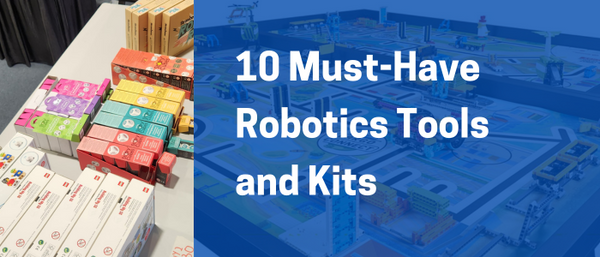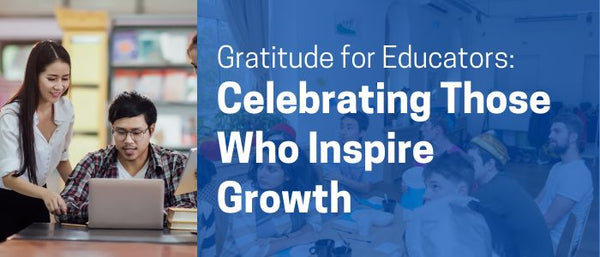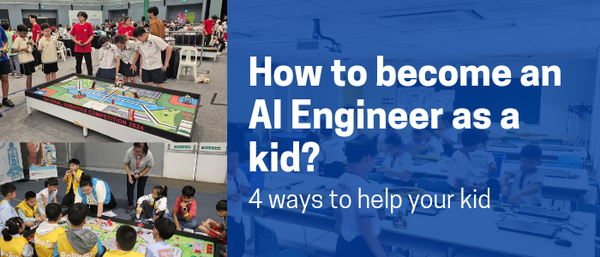趣味代码:新加坡 Pictoblox 激发人工智能学习
目录
介绍
- 让年轻人掌握未来技术的重要性
- 新加坡在编码和人工智能教育方面的举措
趣味代码 (CFF) 拓展课程
- 项目概述
- 亲身体验编码和计算思维
- 利用软件和硬件进行实践学习
Scratch 编程语言
- Scratch 初学者入门
- 培养逻辑思维和解决问题的能力
- 从简单的动画到复杂的人工智能项目
Pictoblox 简介
- 使用 Pictoblox 简化编码
- 通过基于块和 Python 的编码为初学者和高级学习者提供支持
- 互动游戏、机器人和人工智能系统的创新
人工智能在新加坡教育体系中的作用日益增强
- 通过教育科技总体规划整合人工智能
- 学校人工智能学习反馈助手
- 提高学生数学和英语学习能力
利用人工智能工具进行个性化学习
- 自适应学习系统(ALS)
- 数学和地理的个性化学习之旅
- 教师版 Authoring Copilot:简化教育内容创作
人工智能工具在教育领域的优势与挑战
- 新加坡学生学习空间(SLS)的作用
- 即时反馈学生和教师的参与度
- 人类监督的必要性
创新的未来
- 让学生成为科技创造者
- 为下一代做好数字时代的准备
在当今快速发展的数字时代,让年轻人掌握驾驭未来科技的知识和技能至关重要。新加坡教育部 (MOE) 意识到这一需求,推出了多项开创性的举措,教授学生编程和人工智能 (AI) 的基础知识。其中一个突出的项目是“趣味编程”(CFF) 拓展课程,这是一个独特的项目,将游戏与学习相结合,让所有年龄段的孩子都能轻松参与编程。
“趣味编程”项目由教育部与新加坡资讯通信媒体发展局 (IMDA) 合作推出,自 2014 年推出以来,为中小学生提供了亲身体验计算思维和编程的机会。该项目结合了软件(可视化和基于语法的编程语言)和硬件(机器人和微控制器),让学生获得编程概念的实践经验。通过这种创新方法,孩子们可以在玩乐的同时探索自动化、机器人和人工智能的世界。
该项目的核心是学生使用 Scratch 编程语言,这是一款全球流行的基于块的编程语言,专为初学者设计。通过 Scratch,学生可以学习逻辑思维、创造性地解决问题,并开发从简单动画到更复杂的人工智能和机器学习 (ML) 系统的项目。通过实践项目,他们能够掌握自动化机器人、创建智能家居系统,甚至设计自己的虚拟助手的技能,从而弥合想象力与现实世界技术之间的差距。
Pictoblox 简介:赋能年轻创新者
Pictoblox为 Code for Fun 增添了更多乐趣,它是一个直观的平台,简化了编程过程,同时引入了更高级的 AI 和 ML 概念。与 Scratch 类似,Pictoblox 提供了一个用户友好的基于块的界面,非常适合初学者。此外,它还支持 Python,方便高级学习者探索基于文本的编程,帮助他们提升技能。
借助 Pictoblox,学生可以创建响应用户输入的互动游戏,编写机器人程序以完成复杂任务,或设计能够识别模式并进行预测的人工智能系统。该平台为创新提供了无限可能,培养了新一代精通技术的创造者,为未来就业市场的需求做好准备。
人工智能在新加坡教育体系中的作用日益增强
新加坡教育部更进一步,通过 2023 年 9 月启动的教育科技总体规划,将人工智能融入教育体系。该计划旨在个性化学习体验,使教育更具适应性、更高效,并能根据每个学生的独特需求进行定制。
截至2024年6月,新加坡各地的学生和教师正在积极使用多种人工智能工具。其中包括三个“学习反馈助手”,旨在帮助学生学习数学、英语和其他简答题等科目。这些系统提供即时反馈,指导学生纠正错误并提高理解力。例如,数学助手提供逐步纠正,而英语助手则侧重于语法、拼写和句子结构。
利用人工智能工具进行个性化学习
该生态系统的另一个强大工具是自适应学习系统 (ALS),它允许学生按照自己的节奏学习。该系统根据学生的回答提供个性化建议,打造定制化的学习旅程。目前,ALS 已应用于小学高年级的数学和中学高年级的地理等科目,帮助学生更高效地掌握这些科目。
2024年6月,教育部还推出了Authoring Copilot,一款帮助教师创建课程计划、测验和活动的工具。该工具根据教师输入的学习目标生成教学内容,减少了教师的备课时间,使他们能够更加专注于与学生的互动。
所有这些人工智能工具都集成到了新加坡学生学习空间(SLS)中,这是一个为学生提供教育资源和实时反馈的在线门户网站。教师们看到了这些工具带来的显著好处,尤其是在它们能够提供即时反馈并激励学生在学习中更加主动方面。然而,教师们强调,人工监督仍然至关重要,因为人工智能工具偶尔会犯一些需要人工纠正的错误。
创新的未来
新加坡拥抱人工智能,并将编程和计算思维融入国家课程,为未来铺平道路,让学生不再只是科技的消费者,而是成为积极的创造者。由Pictoblox等平台支持的“趣味编程”(Code for Fun)等项目,确保下一代能够充分驾驭科技的力量,塑造一个创新无限的未来。
新加坡通过教育科技总体规划等举措以及让学生从小接触人工智能的项目,正在为如何帮助年轻人做好迎接数字时代机遇和挑战的准备,树立全球典范。随着人工智能持续革新全球各行各业,学生们今天所学的技能将使他们成为未来的创新者、思想者和领导者。
结论
这种教育方式,例如“趣味编程”项目和教育科技总体规划等举措,不仅帮助学生为数字化未来做好准备,更激发了创造力和创新文化。通过将编码、人工智能和计算思维融入课程,新加坡正在赋能下一代,使他们不再只是被动地使用科技,而是成为积极的创造者和创新者。借助Pictoblox等平台,复杂的概念变得通俗易懂且引人入胜,学生们正在获得在人工智能驱动的世界中蓬勃发展所需的技能和自信。随着新加坡不断拥抱尖端教育工具,它已成为全球领导者,展现了如何利用科技为所有人创造更美好的未来。



